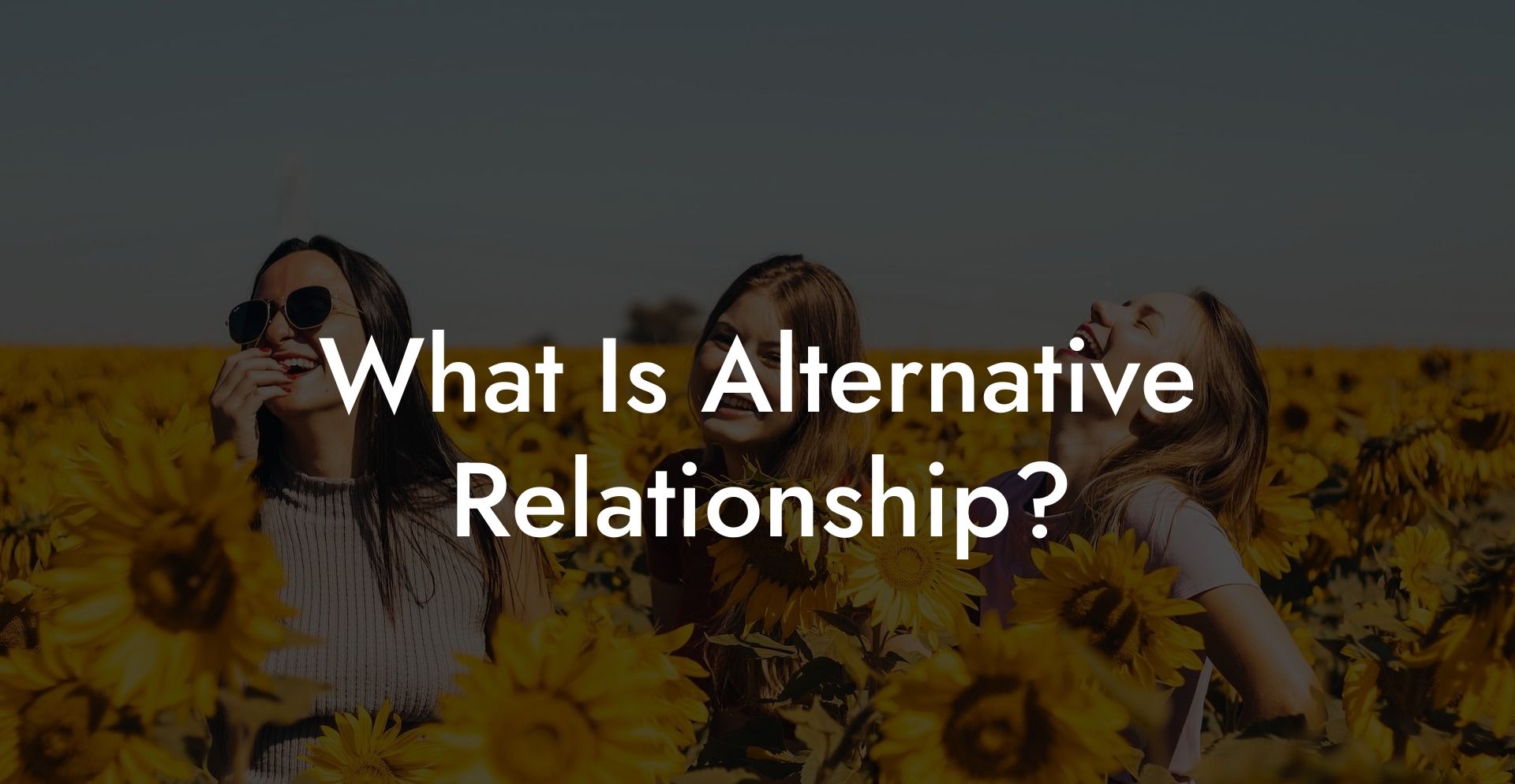As society evolves, so do our relationships. The traditional concept of monogamy, once deemed the proper way of life, is now being re-evaluated and tested in various forms. While some couples and individuals thrive within the boundaries of a monogamous relationship, others find solace in more unconventional means. Enter the world of alternative relationships – an umbrella term for connections and commitments outside the conventional monogamous norm. In this guide, we will delve into the intricate world of alternative relationships, discussing various formats, benefits, and challenges. Join us as we explore the compelling dynamics of this exciting realm, and remember, sharing is caring – so don't forget to spread the word about The Monogamy Experiment!
What Is Alternative Relationship Table of Contents
Defining Alternative Relationships
Defining Alternative Relationships
Simply put, an alternative relationship is one that does not conform to the 'one person for one person' pattern of traditional monogamy. Alternative relationships come in various forms, each with its own distinct set of principles and practices. Some of the most common alternative relationships include:
Open Relationships
A couple may agree to engage in sexual or romantic encounters with others in addition to their primary partner, as long as certain rules and boundaries are maintained.
Polyamory
Polyamory, a term derived from the Greek and Latin words for "many loves," is a relationship model in which individuals can have multiple ethical, consensual, and loving relationships simultaneously. It can include configurations like throuples (a couple that becomes a trio) or any other variation of a relationship with more than two committed partners.
Swinging
Also known as "partner swapping," swinging is a practice where committed couples exchange partners primarily for sexual encounters within a recreational, group setting.
Relationship Anarchy
This non-hierarchical relationship model challenges the traditional norms of romantic relationships by granting individuals the freedom to explore diverse forms of connections not confined to traditional labels or expectations.
Casual Relationships
A casual relationship is one that emphasizes sexual or emotional intimacy without the expectation of commitment or long-term exclusivity.
Alternative Relationship Examples
- Jack and Jane have been married for several years. They both enjoy a strong connection, but they share an itch for new experiences. With open communication and clear boundaries, they decide to engage in an open relationship, allowing each other to have occasional flings on the side while keeping their primary commitment intact.
- Maria, David, and Sarah form a throuple. The three of them share a mutual emotional and sexual connection, and so they decide to build their lives together in a polyamorous relationship with one another.
- Olivia and Max, a committed couple, attend swingers parties and swap partners for an evening. By setting rules and limits, they ensure their connection remains strong while exploring their fantasies together.
Benefits and Challenges
Alternative relationships offer a range of benefits. Here are just a few:
Increased Self-Awareness: The exploration of diverse relationship formats can lead to personal growth and self-discovery.
Emotional Support: Having more than one partner can create a stronger support system in times of need.
Enhanced Communication: Alternative relationships often require constant open communication and negotiation, resulting in more transparent relationships.
However, they can also present some challenges:
Social Stigma: Alternative relationships might attract public scrutiny and disapproval.
Emotional Complexity: Juggling multiple relationships can sometimes lead to emotional turmoil or jealousy.
Time Management: Maintaining multiple relationships can be exhausting, both physically and emotionally.
Alternative relationships offer an exciting world of possibilities for those seeking to break away from the traditional mold. As we have seen, such relationships can enrich one's life in various ways. However, they also require a lot of work and open communication. If you're fascinated by this universe of unconventional love, make sure to explore our other guides here at The Monogamy Experiment!
Remember, sharing is caring – if you found this article valuable, don't hesitate to spread the word about The Monogamy Experiment and invite your friends and loved ones to join the conversation. So, what's your take on alternative relationships? Share with us in the comments, and happy exploring!













